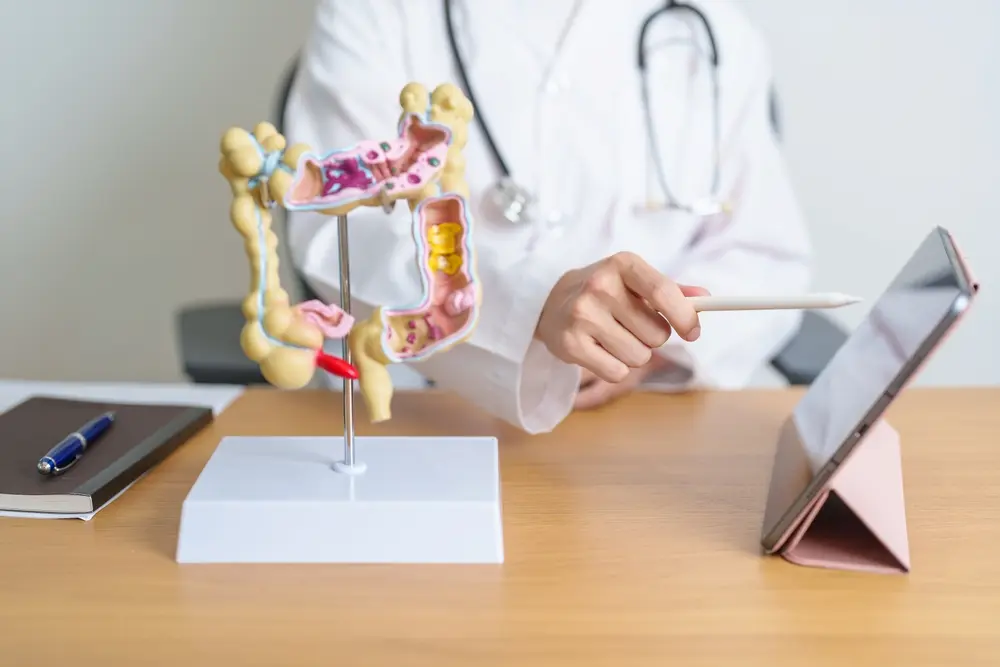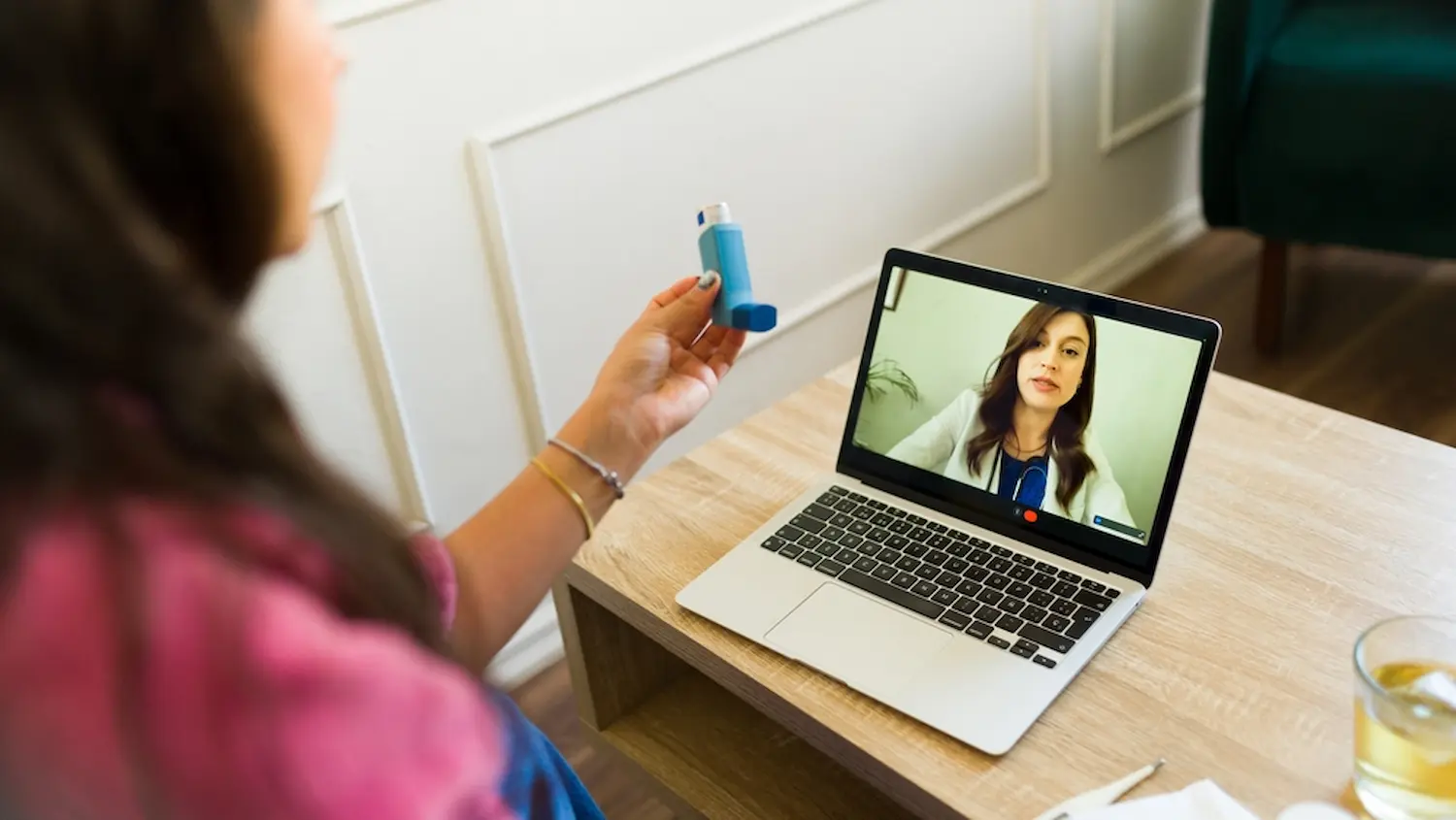
Clostridioides difficile, or C. diff, is a very contagious bacterium. It lives for a long time in places like soil, surfaces in a room, water, human or animal feces, food, and unwashed hands, which makes it easy to catch and spread. C. diff enters the body through the mouth and begins to reproduce in the small intestine. When it reaches the colon (or large intestines), it releases toxins that damage cells and tissues, and can cause watery diarrhea.
C. diff is a bacterium that affects your large intestine (colon) and causes diarrhea. In most cases, you’ll have C. diff bacterium without the infection. That’s because the other bacteria living in your intestine help keep C. diff in check. But when you have a different infection and take antibiotics to treat it, this kills the other helpful bacteria and allows C. diff to spread quickly.
You can contract C. diff through contact with contaminated surfaces or infected people. This is why healthcare settings like hospitals and nursing homes are high-risk environments for C. diff infection.
C. diff infections often occur after taking antibiotics, which can disrupt the normal gut flora. Broad-spectrum antibiotics, which target a wide range of bacteria, are particularly likely to cause this disruption. People who take proton pump inhibitors, which reduce stomach acid, are also at higher risk because stomach acid helps control bacteria in the gut.
Certain groups are more likely to get a C. diff infection:

C. diff symptoms start within 5 to 10 days of taking antibiotics. But in some cases, they can happen as early as the first day or up to three months later. The symptoms vary based on how severe the infection is:
For mild to moderate C. diff infection, symptoms can include:
For a severe C. diff infection, symptoms may include:
C. diff can cause inflammation of the colon, known as colitis. In severe cases, it can lead to life-threatening conditions like toxic megacolon and Pseudomembranous Colitis, which require immediate medical attention.
The good news is that there are many ways to protect yourself against this contagious bacterium. Let’s explore a few:
Good hygiene is key to preventing C. diff. Wash your hands thoroughly with soap and water, especially after using the bathroom and before eating. Hand sanitizers don’t kill C. diff spores, so soap and water are essential—regularly clean surfaces like doorknobs, light switches, and countertops with bleach-based cleaners to kill any lingering spores.
Use antibiotics only when your doctor prescribes, and always complete the full course as directed. Taking antibiotics unnecessarily or stopping them too soon can increase your risk of a C. diff infection. Talk to your doctor if you’re worried about antibiotics affecting your gut health.
When caring for someone with C. diff, you should wear personal protective equipment (PPE) like gowns and gloves. It’s also a good idea to ask about infection control practices, just to stay safe.
Diagnosing a C. diff infection involves a few key steps. First, your doctor will look for symptoms like diarrhea and other signs of a C. diff infection. Then, they will test a stool sample to check for the presence of C. diff bacteria.
People with regular, formed stools typically don’t need to be tested for C. diff. The infection is usually only suspected in cases of persistent diarrhea.
You might wonder, “What does C. diff poop look like?” Infected individuals often have watery, loose stools, sometimes with a strong, unpleasant odor. If you experience these symptoms, it’s vital to seek medical advice for proper diagnosis and treatment.
Treatments are used to address the symptoms of C. diff. Therefore, you won’t receive any intervention if you only have the bacteria without showing symptoms.

When you have a C. diff infection, your doctor will likely prescribe specific antibiotics that target C. diff bacteria. Common antibiotics used include vancomycin and fidaxomicin. These antibiotics effectively kill C. diff while preserving as much healthy gut bacteria as possible. But you should take them as prescribed, and don’t quit midway, even if you start feeling better.
Your doctor may recommend surgery to get rid of the area of the colon that’s affected if you have toxic megacolon, organ failure, severe pain, or inflammation of the lining of the wall around the stomach area.
For people with recurrent C. diff infections, Fecal Microbiota Transplantation (FMT) can be a highly effective treatment. FMT involves transferring stool from a healthy donor into the colon of someone with C. diff. This helps restore the balance of healthy bacteria in the gut. The procedure can be done through a colonoscopy, enema, or sometimes in capsule form. FMT has a high success rate and can significantly reduce the chances of future infections.
Monoclonal antibodies are another treatment option for C. diff. These lab-made proteins can help boost your immune system to fight the infection. A monoclonal antibody called bezlotoxumab targets the toxins produced by C. diff, helping to prevent the infection from coming back. This treatment is often used with antibiotics to provide a more comprehensive approach to tackling the disease.
Supportive care includes a range of remedies designed to help manage symptoms and prevent complications. For example, if you’re dealing with severe diarrhea, you want to drink plenty of fluids to avoid dehydration. You also want to maintain proper nutrition and manage pain (if any). Sometimes, hospitalization may be necessary to provide intravenous fluids and other supportive measures.
Despite the available treatment options, C. diff infections can be tough to manage, with many people experiencing recurrences. The infection returns in about 20% of patients, which can happen repeatedly until it becomes debilitating. This is why organizations like Science 37 work hard to develop new and better solutions to this ongoing problem.
Science 37 conducts gastrointestinal-focused clinical trials to explore new ways to treat C. diff infections and reduce their chances of coming back.These trials might test new medications, alternative treatments, or innovative methods like microbiome modulation.
If you’re struggling with a C. Diff infection, these clinical trials can give you access to advanced treatments before they’re widely available. Please get in touch with us directly or talk to your healthcare provider. They can give you more information about current trials and help you decide if joining one is a good choice.


